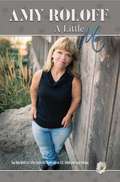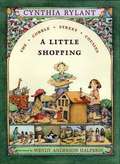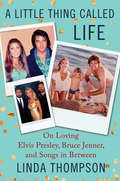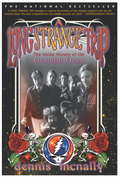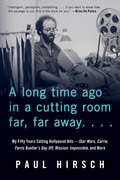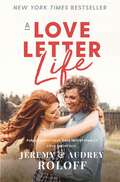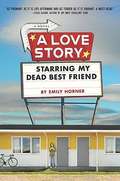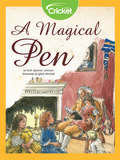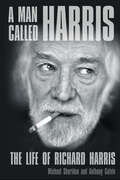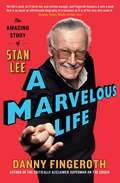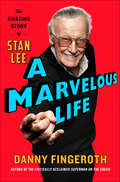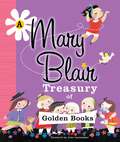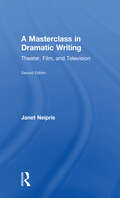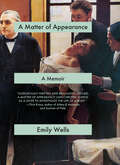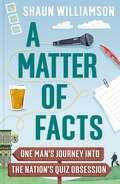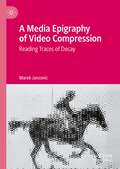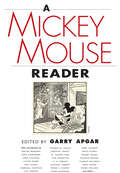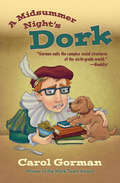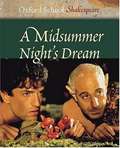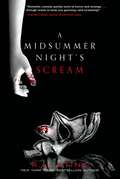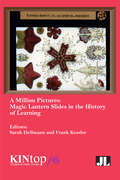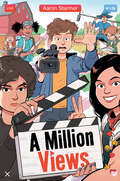- Table View
- List View
A Little Me
by Amy RoloffTLC star Amy shares what it was like growing up with dwarfism, how she struggled to overcome obstacles both physical and emotional while learning, as we all must, to accept herself for who she is. &“God doesn&’t make mistakes.&” For Amy Roloff, star of TLC&’s hit reality show Little People, Big World, her father&’s words would repeatedly serve as an anchor, reminding her of her inherent worth and purpose, whenever feelings of insecurity and inadequacy surfaced and threatened to overwhelm her. In A Little Me, Amy shares what it was like growing up with achondroplasia dwarfism, how she struggled to overcome obstacles both physical and emotional—navigating the average-size world as a little person, dealing with a serious illness as a young girl, bullying, and issues of body image and unachievable beauty ideals—while learning, as we all must, to accept herself for who she is. Finally allowing herself to be vulnerable enough to open up to others, she learned that it&’s worth risking possible rejection for a chance at genuine relationships. Ultimately, it was Amy&’s faith, as well as the support and encouragement of her community of loving family and good friends, that saw her through the dark times and allowed her to realize her greatest dreams and beyond. Amy&’s memoir is an inspiring and at times heart-wrenching account of resilience and the strength of the human spirit to overcome seemingly insurmountable obstacles.
A Little Shopping (Fountas & Pinnell LLI Blue #2)
by Cynthia RylantWelcome to Cobble Street! Meet Lily, Rosie, and Tess, the three heroines of a new series by Newbery Medalist Cynthia Rylant. Lily thinks the three cousins should make a surprise for their Aunt Lucy -- a dollhouse that looks just like Aunt Lucy's flower shop. The cousins get Aunt Lucy's sweetheart, Michael, to help. And then they get busy cutting, painting, gluing, and decorating. And best of all, there's a surprise for Michael too. When the Cobble Street Cousins set their minds to something, it's bound to turn out amazing!
A Little Thing Called Life: On Loving Elvis Presley, Bruce Jenner, and Songs in Between
by Linda Thompson<P>Award-winning songwriter Linda Thompson breaks her silence, sharing the extraordinary story of her life, career, and epic romances with two of the most celebrated, yet enigmatic, modern American superstars--Elvis Presley and Bruce Jenner <P>For the last forty years, award-winning songwriter Linda Thompson has quietly led one of the most remarkable lives in show business. The longtime live-in love of Elvis Presley, Linda first emerged into the limelight during the 1970s when the former beauty pageant queen caught the eye of the King. Their chance late-night encounter at a movie theater was the stuff of legend, and it marked the beginning of a whirlwind that would stretch across decades, leading to a marriage with Bruce Jenner, motherhood, and more drama than she ever could have imagined. <P>Now, for the first time, Linda opens up about it all, telling the full story of her life, loves, and everything in between. From her humble beginnings in Memphis to her nearly five-year relationship with Elvis, she offers an intimate window into their life together, describing how their Southern roots fueled and sustained Graceland's greatest romance. Going inside their wild stories and tender moments, she paints a portrait of life with the King, as raucous as it is refreshing. But despite the joy they shared, life with Elvis also had darkness, and her account also presents an unsparing look at Elvis's twin demons--drug abuse and infidelity--forces he battled throughout their time together that would eventually end their relationship just eight months before his untimely death.It was in the difficult aftermath of Elvis's death that Linda found what she believed was her true home: the arms of Olympic gold medal--winner Bruce Jenner. <P>Detailing her marriage to Bruce, Linda reveals the seemingly perfect life that they built with their two young sons--Brandon and Brody--before Bruce changed everything with a secret he'd been carrying his entire life, a secret that Linda herself kept for nearly thirty years, a secret that Bruce's transition to Caitlyn Jenner has finally laid bare for the world. Providing a candid look inside one of the most challenging moments of her life, Linda uncovers the struggles she went through as a woman and a mother, coming to terms with the reality of Bruce's identity and resolving to embrace him completely no matter what, even as it meant they could no longer be together. <P>And yet, despite her marriage unraveling, her search for love was not over, eventually leading her to the legendary music producer and musician David Foster--a relationship that lasted for nineteen tumultuous years, resulting in a bond that spurred her songwriting career to new heights but also tested her like never before. Filled with compelling and poignant stories and sixteen pages of photographs, A Little Thing Called Life lovingly recounts Linda's incredible journey through the years, bringing unparalleled insight into three legendary figures. <P><b>A New York Times Bestseller</b>
A Long Strange Trip: The Inside History of the Grateful Dead
by Dennis McnallyThe complete history of one of the most long-lived and legendary bands in rock history, written by its official historian and publicist--a must-have chronicle for all Dead Heads, and for students of rock and the 1960s' counterculture. From 1965 to 1995, the Grateful Dead flourished as one of the most beloved, unusual, and accomplished musical entities to ever grace American culture. The creative synchronicity among Jerry Garcia, Bob Weir, Phil Lesh, Bill Kreutzmann, Mickey Hart, and Ron "Pigpen" McKernan exploded out of the artistic ferment of the early sixties' roots and folk scene, providing the soundtrack for the Dionysian revels of the counterculture. To those in the know, the Dead was an ongoing tour de force: a band whose constant commitment to exploring new realms lay at the center of a thirty-year journey through an ever-shifting array of musical, cultural, and mental landscapes. Dennis McNally, the band's historian and publicist for more than twenty years, takes readers back through the Dead's history in A Long Strange Trip. In a kaleidoscopic narrative, McNally not only chronicles their experiences in a fascinatingly detailed fashion, but veers off into side trips on the band's intricate stage setup, the magic of the Grateful Dead concert experience, or metaphysical musings excerpted from a conversation among band members. He brings to vivid life the Dead's early days in late-sixties San Francisco--an era of astounding creativity and change that reverberates to this day. Here we see the group at its most raw and powerful, playing as the house band at Ken Kesey's acid tests, mingling with such legendary psychonauts as Neal Cassady and Owsley "Bear" Stanley, and performing the alchemical experiments, both live and in the studio, that produced some of their most searing and evocative music. But McNally carries the Dead's saga through the seventies and into the more recent years of constant touring and incessant musical exploration, which have cemented a unique bond between performers and audience, and created the business enterprise that is much more a family than a corporation. Written with the same zeal and spirit that the Grateful Dead brought to its music for more than thirty years, the book takes readers on a personal tour through the band's inner circle, highlighting its frenetic and very human faces. A Long Strange Trip is not only a wide-ranging cultural history, it is a definitive musical biography.
A Long Time Ago in a Cutting Room Far, Far Away: My Fifty Years Editing Hollywood Hits—Star Wars, Carrie, Ferris Bueller's Day Off, Mission: Impossible, and More
by Paul HirschA Long Time Ago in a Cutting Room Far, Far Away is a behind-the-scenes look at some of the most influential films of the last 50 years by Paul Hirsch, the film editor who worked on Star Wars, The Empire Strikes Back, Ferris Bueller's Day Off and more than 40 other features. Starting with his work on Carrie, Hirsch gives insight into the production process, touching upon casting, directing, cutting and scoring. It's a riveting look at the decisions that went into creating memorable and iconic scenes and offers fascinating portraits of filmmakers, stars and composers. Part film-school primer, part paean to legendary directors and professionals, the funny yet insightful writing will entertain and inform aficionados and casual moviegoers alike.
A Love Letter Life: Pursue Creatively. Date Intentionally. Love Faithfully.
by Jeremy Roloff Audrey RoloffNEW YORK TIMES BESTSELLERMore than 2.3 million people watched as Jeremy and Audrey Roloff shared their vows and committed their lives to each other. Now for the first time, the former co-stars of TLC's hit show Little People, Big World share their imperfect, resilient, and inspiring love story.As Jeremy and Audrey write, if you can fall into love, you can fall out. True love is something you choose to live out each day through your actions, decisions, and sacrifices. To find and still seek, now that is love. From the moment you meet your potential spouse, you can be intentional about shaping a beautiful love story, uniquely written for who God created you both to be. Whether you're single and searching, in a serious dating relationship, or desiring to love your spouse better, Jeremy and Audrey equip you to pursue an intentional, creative, and faithful love story by sharing theirs.The journey to their wedding day was the culmination of a bumpy and complicated dating relationship. From health problems, to emotional walls, to being separated by one thousand miles, the couple faced daunting obstacles. But their unique approach to dating empowered them to write an uncommon love story and prepared them for married life. Because as beautiful as their wedding was, the Roloffs made a point to prepare more for their marriage than their wedding day.Told through both Jeremy's and Audrey's voices, A Love Letter Life tells a passionate and persevering story of relatable struggles, hard-learned lessons, practical tips, and devout commitment. In these pages, they encourage you to stop settling for convenient relationships, offer perspective on male and female differences in dating, tackle tough topics like purity, give their nine rules for fighting well, suggest fun ideas for connection in a world of technology, and provide fresh advice on how to intentionally pursue a love story that never ends.
A Love Story Starring My Dead Best Friend
by Emily HornerFor months, Cass has heard her best friend, Julia, whisper about a secret project. When Julia dies in a car accident, her drama friends decide to bring the project--a musical called Totally Sweet Ninja Death Squad--to fruition. But Cass isn't a drama person. She can't take a summer of painting sets, and she won't spend long hours with Heather, the girl who made her miserable all through middle school and has somehow landed the leading role. So Cass takes off. In alternating chapters, she spends the first part of summer on a cross-country bike trip and the rest swallowing her pride, making props, and--of all things--falling for Heather. This is a story of the breadth of love. Of the depth of friendship. And of the most hilarious musical one quiet suburb has ever seen.
A Magical Pen
by Ruth Spencer JohnsonDid you know that Congress signed the Declaration of Independence on the Fourth of July? In this short play, learn more about the Declaration as Thomas Jefferson himself tells his grandchildren the story of its creation.
A Man Called Harris: The Life of Richard Harris
by Anthony Galvin Michael SheridanRichard Harris was a giant who oozed charisma on screen. But off screen he was troubled and addicted to every pleasure life could offer. Coming from a repressed Irish Catholic background, he was forced by a teenage illness to abandon his beloved rugby, but not his macho appetites. Discovering theatre saved him. He had found his calling. Despite marrying the daughter of a peer, he never tried to fit in. He was always a hell-raiser to the core, along with legendary buddies Richard Burton and Peter O’Toole. But he was more; he was a gifted poet and singer. He was an intelligent family man who took great interest in his craft, a Renaissance man of the film world. Every time his excesses threatened to kill his career – and himself – he rose magnificently from the ashes, first with an Oscar-winning performance as Bull McCabe in The Field, then in the Harry Potter franchise.
A Manual of Counterpoint Based on Sixteenth-Century Practice
by David D. BoydenSince counterpoint is the art of combining 2 or more melodies, this book discusses the contours of melodies in relation to other ones.
A Marvelous Life: The Amazing Story of Stan Lee
by Danny FingerothStan Lee invented SPIDER-MAN! And IRON MAN! And the HULK! And the X-MEN! And more than 500 other iconic characters! His name has appeared on more than a billion comic books, in 75 countries, in 25 languages. His creations have starred in multibillion-dollar grossing movies and TV series. This is his story.Danny Fingeroth writes a comprehensive biography of this powerhouse of ideas who changed the world&’s understanding of what a hero is and how a story should be told, while exploring Lee's unique path to becoming the face of comics. With behind-the-scenes stories and interviews with Stan&’s brother Larry Lieber and other industry legends, The Marvelous Life has insights that only an insider like Fingeroth can offer. Fingeroth, himself a longtime writer and editor at Marvel Comics and now a lauded pop culture critic and historian, knew and worked with Stan Lee for over three decades. Due to this connection, Fingeroth is able to put Lee&’s life and work in a context that makes events and actions come to life as no other writer could.
A Marvelous Life: The Amazing Story of Stan Lee
by Danny FingerothThe definitive biography of the beloved—often controversial—co-creator of many legendary superheroes, A Marvelous Life: The Amazing Story of Stan Lee presents the origin of “Stan the Man,” who spun a storytelling web of comic book heroic adventures into a pop culture phenomenon: the Marvel Universe."[Fingeroth's] intimate yet balanced account, highlights Lee’s humanity, humor and even humility. But it doesn’t ignore how his canny self-promotion at times shortchanged his collaborators and constrained his own choices." —Wall Street JournalStan Lee was the most famous American comic book creator who ever lived.Thanks, especially, to his many cameos in Marvel movies and TV shows, Lee was—and even after his 2018 death, still is—the voice and face of comics and popular culture in general, and Marvel Comics in particular. How he got to that place is a story that has never been fully told—until now.With creative partners including Jack Kirby and Steve Ditko—with whom he had tempestuous relationships that rivaled any superhero battle—Lee created world-famous characters including Spider-Man, Iron Man, the X–Men, the Avengers, and the Hulk!But Lee’s career was haunted by conflict and controversy. Was he the most innovative creator to ever do comics? Was he a lucky no-talent whose only skill was taking credit for others’ work? Or was he something else altogether? Danny Fingeroth’s A Marvelous Life: The Amazing Story of Stan Leeattempts to answer some of those questions. It is the first comprehensive biography of this powerhouse of ideas who, with his invention of Marvel Comics, changed the world’s ideas of what a hero is and how a story should be told. With exclusive interviews with Lee himself, as well as with colleagues, relatives, friends—and detractors—Fingeroth makes a doubly remarkable case for Lee’s achievements, while not ignoring the controversies that dogged him his entire life—and even past his death. With unique access to Lee’s personal archives at the University of Wyoming, Fingeroth explores never-before-examined aspects of Lee’s life and career, and digs under the surface of what people thought they knew about him.Fingeroth, himself a longtime writer and editor at Marvel Comics, and now a lauded pop culture critic and historian, knew and worked with Stan Lee for over four decades. With his unique insights as a comics world insider, Fingeroth is able to put Lee’s life and work in a unique context that makes events and actions come to life as no other writer could. Despite F. Scott Fitzgerald’s famous warning that “There are no second acts in American lives,” Stan Lee created a second act for himself that changed everything for him, his family, his industry, and ultimately for all of popular culture. How he did it—and what it cost him—is a larger-than-life tale of a man who helped create the modern superhero mythology that has become a part of all our lives.
A Mary Blair Treasury of Golden Books
by VariousFans of illustrator Mary Blair will cherish this never-before-published treasury of her Golden Books, which includes material that hasn't been in print in decades. I Can Fly is here in its unabridged glory, as are Baby's House, The Up and Down Book, and The Golden Book of Little Verses. Many of the finest pages from The New Golden Song Book are included, to round out this gorgeous collection. All of the original artwork has been digitally reproduced, and has never looked more breathtaking! Academy Award-winning animator John Canemaker—author of The Art and Flair of Mary Blair—wrote the foreword for this highly anticipated book honoring one of the most beloved illustrators of our time.
A Masterclass in Dramatic Writing: Theater, Film, and Television
by Janet NeiprisA Masterclass in Dramatic Writing is an essential tool for professional teachers in academic programs training successful Playwrights, Screenwriters, and TV writers, as well as anyone who wants to write a completed dramatic script. You can become a successful dramatic writer within a group or by yourself. This focused and engaging book is organized as a one-semester course. The chapters guide the writer week-by-week and step-by-step resulting in the completion of a first draft and a rewrite of an original script. The fourteen chapters are each accompanied by Weekly Exercises and progressive Assignments. In this expanded and updated edition, Neipris integrates her widely used To Be A Playwright, into a master class for playwrights, screenwriters and TV writers. New Chapters include: THE MORAL RESPONSIBILITY OF THE WRITER ONE WRITER’S LIFE BEGINNINGS- WHERE IDEAS ORIGINATE COMEDY CHECKPOINTS ADAPTATION –FILM, THEATER, AND TELEVISION PUTTING IT TOGETHER -- CONSTRUCTING A FULL LENGTH SCRIPT LESSONS FROM MASTER TEACHERS AND STUDENTS Janet’s legacy as an educator, mentor, and artists is legendary. This book is a gift to the profession and the art. Brandon Jacobs-Jenkins
A Matter of Appearance: A Memoir
by Emily WellsA dazzling memoir of chronic illness that explores the fraught intersection between pain, language, and gender, by a debut author.Emily Wells spent her childhood dancing through intense pain she assumed was normal for a ballerina pushing her body to its limits. For years, no doctor could tell Wells what was wrong with her, or they told her it was all in her head.In A Matter of Appearance, Wells traces her journey as she tries to understand and define the chronic pain she has lived with all her life. She draws on the critical works of Freud, Sontag, and others to explore the intersection between gender, pain, and language, and she traces a direct line from the &“hysteria patients&” at the Salpêtrière Hospital in nineteenth-century Paris to the contemporary New Age healers in Los Angeles, her stomping ground. At the crux of Wells&’ literary project is the dilemma of how to diagnose an experience that is both private and public, subjective and quantifiable, and how to express all this in words.&“Gorgeously written and brilliantly argued, A Matter of Appearance uses chronic illness as a lever to investigate the life of a body. It&’s complex, inconclusive, and incredibly clear-eyed. Moving fluidly between histories of psychoanalysis, desire, ambition, pathology, Wells reminds us of the liminal state we all live in between sickness and health.&”—Chris Kraus, author of Aliens & Anorexia and Summer of Hate
A Matter of Facts: One Man's Journey into the Nation's Quiz Obsession
by Shaun WilliamsonA journey into the obsessive world of quizzing. Includes stories from Shaun's past such as tales from his time playing Barry in Eastenders; the discovery of a long-lost son; hiding from an angry Mike Reid in a broom cupboard; acting with Ricky Gervais and David Bowie, and the loss of his boyhood friend in 9/11.Actor and celebrity quizzer Shaun Williamson lifts the lid on a National drug that everyone hooked on: quizzing. A Matter of Facts is a personal journey into the world of quizzes. At the start Shaun enters the World Quiz Grand Prix, pitching his knowledge against the Nation's finest minds, including Eggheads and Chasers... he fails. Unperturbed, he sets out to improve his skills through memory training, practice and even hypnosis in an attempt to move himself up the rankings of the quizzing elite. Shaun's adventure sees him get his old quizzing 'band' back together to see if he can triumph in the leagues. As he does so, he meets many characters and experiences the wonderful vagaries of the pub quiz - discovering its place, not just in communities, but in people's lives. He also reminisces about his life before acting as an alcoholic postman, a stalled naval career,a Pontins blue coat and his journey to becoming Barry in EastEnders. Over the course of year Shaun aims to end his journey at a victorious return to the Grand Prix... can his experiences and new-found knowledge end in victory? A Matter of Facts is a fun, fascinating and heart-warming read that will be adored by those who enjoy a regular meeting of alcohol and trivia.
A Matter of Facts: One Man's Journey into the Nation's Quiz Obsession
by Shaun WilliamsonA journey into the obsessive world of quizzing. Includes stories from Shaun's past such as tales from his time playing Barry in Eastenders; the discovery of a long-lost son; hiding from an angry Mike Reid in a broom cupboard; acting with Ricky Gervais and David Bowie, and the loss of his boyhood friend in 9/11.Actor and celebrity quizzer Shaun Williamson lifts the lid on a National drug that everyone hooked on: quizzing. A Matter of Facts is a personal journey into the world of quizzes. At the start Shaun enters the World Quiz Grand Prix, pitching his knowledge against the Nation's finest minds, including Eggheads and Chasers... he fails. Unperturbed, he sets out to improve his skills through memory training, practice and even hypnosis in an attempt to move himself up the rankings of the quizzing elite. Shaun's adventure sees him get his old quizzing 'band' back together to see if he can triumph in the leagues. As he does so, he meets many characters and experiences the wonderful vagaries of the pub quiz - discovering its place, not just in communities, but in people's lives. He also reminisces about his life before acting as an alcoholic postman, a stalled naval career,a Pontins blue coat and his journey to becoming Barry in EastEnders. Over the course of year Shaun aims to end his journey at a victorious return to the Grand Prix... can his experiences and new-found knowledge end in victory?A Matter of Facts is a fun, fascinating and heart-warming read that will be adored by those who enjoy a regular meeting of alcohol and trivia.
A Media Epigraphy of Video Compression: Reading Traces of Decay
by Marek JancovicThis book explores the historical interrelationships between mathematics, medicine and media, and offers a unique perspective on how video compression has shaped our relationship with moving images and the world. It situates compression in a network of technological, visual and epistemic practices spanning from late 18th-century computational methods to the standardization of electrical infrastructure and the development of neurology throughout the 1900s. Bringing into conversation media archaeology, science and technology studies, disability studies and queer theory, each chapter offers an in-depth look at a different trace of compression, such as interlacing, macroblocking or flicker. This is a story of forgotten technologies, unusual media practices, strange images on the margins of visual culture and inventive ways of looking at the world. Readers will find illuminating discussions of the formation of complex scientific and medical systems, and of the violent and pleasurable interactions between our bodies and media infrastructure.
A Merry Little Murder (A Lindy Haggerty Mystery #5)
by Shelley Freydont[From the Back Cover:] "This Christmas, former dancer Lindy Haggerty leaves her toe shoes behind to hit the glitzy International Ballroom Competition in Atlantic City, where it takes two to tango--but only one to kill... Lindy and company barely have time to unpack before the backbiting begins. Dawn Gilpatrick, owner of a famous dance studio, clues Lindy in to the politics and gossip behind the scenes. Seems a rival studio owned by her ex-husband/dance partner is trying to steal one of Dawn's top teachers, resulting in a lawsuit for breach of contract by Dawn. If that's not enough, her top couple--Shane Corbett and Katya Andrejewsky--are about to break up, courtesy of Shane, and unbeknownst to Katya. Lindy's head is spinning more than the dancers are. Scandals and catfights are threatening to upstage the competition. Shane and Katya's sudden disappearance is the last straw for Dawn--professionally and financially. And just when things couldn't possibly get any worse, a body is discovered, washed up under the boardwalk. Now, it's up to Lindy to take the lead in solving a Christmas mystery...before anyone else dances with death."
A Mickey Mouse Reader
by Garry ApgarContributions by Walter Benjamin, Lillian Disney, Walt Disney, E. M. Forster, Stephen Jay Gould, M. Thomas Inge, Jim Korkis, Anna Quindlen, Diego Rivera, Gilbert Seldes, Maurice Sendak, John Updike, Irving Wallace, Cholly Wood, and many othersRanging from the playful, to the fact-filled, and to the thoughtful, this collection tracks the fortunes of Walt Disney's flagship character. From the first full-fledged review of his screen debut in November 1928 to the present day, Mickey Mouse has won millions of fans and charmed even the harshest of critics. Almost half of the eighty-one texts in A Mickey Mouse Reader document the Mouse's rise to glory from that first cartoon, Steamboat Willie, through his seventh year when his first color animation, The Band Concert, was released. They include two important early critiques, one by the American culture critic Gilbert Seldes and one by the famed English novelist E. M. Forster. Articles and essays chronicle the continued rise of Mickey Mouse to the rank of true icon. He remains arguably the most vivid graphic expression to date of key traits of the American character—pluck, cheerfulness, innocence, energy, and fidelity to family and friends. Among press reports in the book is one from June 1944 that puts to rest the urban legend that “Mickey Mouse” was a password or code word on D-Day. It was, however, the password for a major pre-invasion briefing. Other items illuminate the origins of “Mickey Mouse” as a term for things deemed petty or unsophisticated. One piece explains how Walt and brother Roy Disney, almost single-handedly, invented the strategy of corporate synergy by tagging sales of Mickey Mouse toys and goods to the release of Mickey's latest cartoons shorts. In two especially interesting essays, Maurice Sendak and John Updike look back over the years and give their personal reflections on the character they loved as boys growing up in the 1930s.
A Midsummer Night's Dork (Dork #3)
by Carol GormanWhile preparing for his school's Shakespeare fundraiser, dorky Jerry Flack goes head to head with the school bullyJerry Flack's first order of business as the new sixth-grade class president? Raising money to help make Hawthorne Middle School the coolest, starting with an Elizabethan fundraising festival to coincide with the class reading of Shakespeare's A Midsummer Night's Dream. There's just one problem: As class president, Jerry is going to have to make a speech in front of everybody to kick off the event. What's worse, class bully Craig Fox will see to it that Jerry embarrasses himself during his big moment. What's a dorky class president to do?With a lot of hard work and a little bit of help from his best friends, Jerry is determined to make this event a success. Can he rise to the occasion and show Craig that the school's biggest dork can organize the coolest Shakespeare festival ever?
A Midsummer Night's Dream
by William Shakespeare Roma GillFairy and human worlds collide in Shakespeare's beloved comedy of love and error. Includes notes on vocabulary, history and the dramatic structure of the play.
A Midsummer Night's Scream
by R. L. StineIn R.L. Stine's A Midsummer Night's Scream, the Master of Horror takes on the Master of Theatre! Oh, what fools these actors be! It was a horror movie that turned into real horror--three young actors lost their lives while the camera rolled. Production stopped, and people claimed that the movie was cursed. Sixty years later, new actors are venturing onto the haunted set. In a desperate attempt to revive their failing studio, Claire's dad has green-lit a remake of Mayhem Manor—and Claire and her friends are dying to be involved. At first, Claire laughs at Jake's talk of ghosts and curses. He's been too busy crushing on her best friend Delia to notice that she's practically been throwing herself at him. What does he know? And anyway, this is her big chance to be a star! When shooting starts, though, the set is plagued by a series of horrible accidents—could history be repeating itself?
A Million Pictures: Magic Lantern Slides in the History of Learning
by Sarah Dellmann and Frank KesslerSlides for the magic or optical lantern were a major tool for knowledge transfer in the second half of the 19th and early 20th centuries. Schools, universities, the church and many public and private institutions all over the world relied on the lantern for illustrated lectures and demonstrations. This volume brings together scholarly research on the educational uses of the optical lantern in different disciplines by international specialists, representing the state of the art of magic lantern research today. In addition, it contains a lab section with contributions by archivists and curators and performers reflecting on ways to preserve, present and re-use this immensely rich cultural heritage today.Authors of this collection of essays will include Richard Crangle, Sarah Dellmann, Ine van Dooren, Claire Dupré La Tour, Jenny Durrant, Francisco Javier Frutos Esteban, Anna Katharina Graskamp, Emily Hayes, Erkki Huhtamo, Martyn Jolly, Joe Kember, Frank Kessler, Machiko Kusahara, Sabine Lenk, Vanessa Otero, Carmen López San Segundo, Ariadna Lorenzo Sunyer, Daniel Pitarch, Jordi Pons, Montse Puigdeval, Angélique Quillay, Angel Quintana Morraja, Nadezhda Stanulevich, Jennifer Tucker, Kurt Vanhoutte, Márcia Vilarigues, Joseph Wachelder, Artemis Willis, Lee Wing Ki, Irene Suk Mei Wong, and Nele Wynants.
A Million Views
by Aaron StarmerBrewster Gaines just wanted to make a video and get a million views - he didn't count on needing friends to get there. From the author of Spontaneous and the Locker 37 series comes a heartfelt story of friendship, family, and filmmaking.&“A well-rounded, heartfelt tale of creativity and family.&”—Kirkus Reviews, starred review&“A Million Views turns its lens on YouTube fame in a way that&’s fun, educational, and inspiring.&”—Ryan North, New York Times best-selling author of The Unbeatable Squirrel Girl&“A celebration of the creative spirit in all of us!&”—Rob Harrell, author of WinkBrewster Gaines loves everything about making videos. The planning, the filming, the editing, and especially the feeling of watching his YouTube views tick up and up. So what if he doesn&’t have friends to film with or parents who are home every night for dinner? He&’s got a phone and a tripod and a lofty goal:A million views.But when he enlists the acting chops of charismatic new kid Carly for a ten-second video, he gets more than he bargained for. Her intimidating friend Rosa soon steps in with funding to produce an epic fantasy trailer, and before long, their tiny team is adding cast and crew. What started as a simple shoot mutates into a full-fledged movie production, complete with method-acting cosplayers, special effects, and a monster made out of a go-kart. That&’s when Brewster realizes that getting to a million views may be harder than he ever imagined . . .
